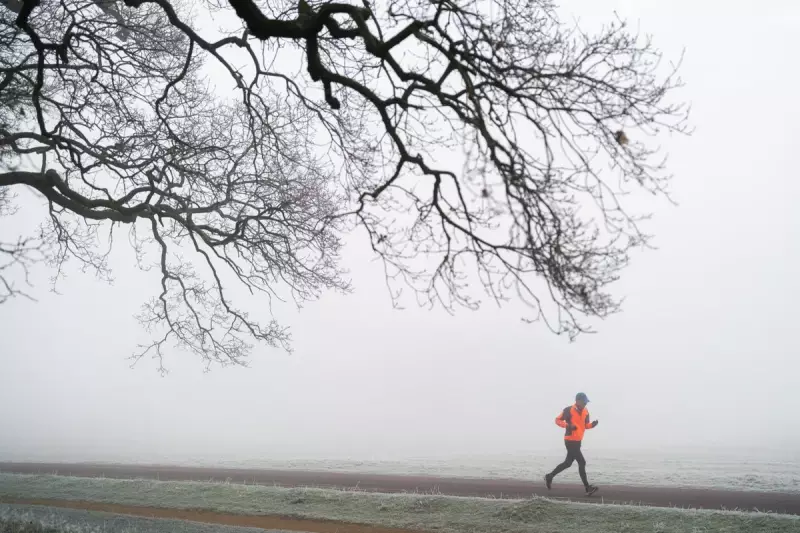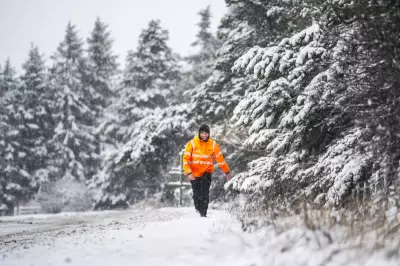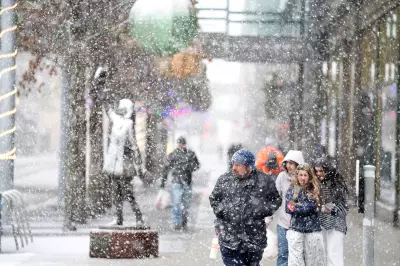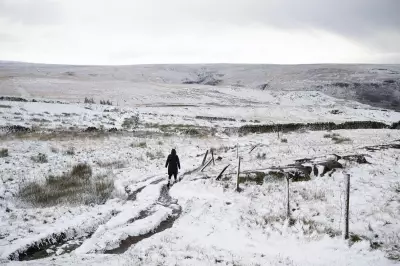
The UK Health Security Agency (UKHSA) has escalated its warning to an amber cold health alert for northern England, as forecasters predict a severe cold snap could see overnight temperatures plummet to a bone-chilling -10C this week.
Widespread Warnings and Health Risks
The significant amber alert is active for the North East, North West, and Yorkshire and the Humber regions. For the rest of England, a yellow alert is in place. Both warnings are scheduled to remain from 12pm on Monday, 17th November, until 8am on Saturday.
This elevated alert level indicates that the severe weather is expected to have significant impacts across health and social care services. Authorities anticipate a surge in demand for NHS services, a potential drop in temperatures inside hospitals and care homes below safe levels, and a concerning rise in mortality rates, particularly among the vulnerable aged 65 and over or those with pre-existing health conditions.
Met Office Forecasts Snow and Disruption
This health warning coincides with multiple yellow weather warnings for snow and ice issued by the Met Office for parts of Scotland and northern England, effective from Monday to Thursday.
Chief forecaster Paul Gundersen detailed the immediate risks: "Scattered showers feed into the North East and far north of mainland Scotland on Monday night, bringing a risk of icy conditions on roads and pavements." He added that rain arriving in western Scotland on Tuesday morning could turn to snow, with accumulations of 2-5cm possible above 150 metres and up to 5-10cm above 400 metres, likely causing travel disruption.
The cold is set to intensify mid-week. Deputy chief forecaster Tom Crabtree warned that Wednesday to Friday will be the coldest part of the week. "Overnight, temperatures could get down to minus 10C, with a significant wind chill from the strong northerly wind making things feel even colder," he stated.
Wintry showers are forecast to extend south, potentially depositing 2-5cm of snow in some low-lying northern and eastern areas. More notably, hills in Northern Ireland, northeast England, and Scotland could see 5-10cm, with a possibility of 15-20cm above 300 metres in parts of north-eastern England and Scotland.
Heart Health Warning in the Cold
With the first major cold spell of the year, the British Heart Foundation (BHF) has issued specific advice. Ruth Goss, a senior cardiac nurse at the BHF, explained: "Cold temperatures can increase the risk of heart attacks and strokes, and people with cardiovascular disease are also more at risk of serious illness if they get seasonal respiratory infections like flu."
The BHF recommends several precautions for the public:
- Keep your main living room to at least 18°C.
- Layer clothing with socks, jumpers, and blankets to retain body heat.
- Stay active indoors and consume warm meals and healthy hot drinks.
- If you have angina, wear a scarf loosely over your mouth and nose to warm the air you breathe.
While conditions are expected to become drier from Friday with milder temperatures, the UK is being urged to take this initial cold snap of the season seriously and to stay updated with the latest forecasts and health advice.





